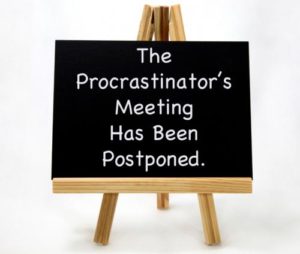Slash Meeting Time, Boost Productivity
There’s nothing worse than long, unproductive meetings. Sitting through them feels like you’re dying a slow death. And there are so many better things you could be doing with your day! But is it possible to really slash meeting times and boost productivity? Sure it is — if you institute and, importantly, stick to a few “ground rules” such as “no sidebars,” “turn off electronics” and “no pontificating.” You can also trim time by allocating specific time for each agenda and then assigning others key meeting roles (i.e., timekeeper, facilitator). Don’t let the next meeting be your grim reaper! Take steps today to make that next meeting shorter, stronger and more effective.
To expand on this a bit, I’ve written up some “Rules of Engagement” for shorter, more successful meetings. If the meetings you run don’t have similar guidelines, hand these out and give ‘em a try at your next opportunity. (Oh, and then don’t forget to enforce them!)
1. Turn off outside electronics.
Harsh as it may sound, cell phones, smart phones, iPads, laptops and other such electronic devices need to be “in the off position.” We may not be taking off for a landing, but everyone at this meeting needs to give their full attention to the subject at hand and whomever is speaking. Laptops, in particular, create a barrier between the person sitting behind them and everyone else in the room. Turn ‘em off and put them away.
2. No sidebars.
It’s downright rude when people start talking among themselves when someone else has the floor. As tempting as it may be, just don’t do it. Resist the urge to have a one to one with the people next to you.3. Better your body language.
Use your body to be more present, involved and receptive to whatever is being presented at the meeting. Watch out for slouching, fidgeting and poor or possibly offensive eye contact or gestures. Drop any hidden defenses, opening your arms if they’re crossed and positioning your head, heart and feet more toward the speaker. Nod with understanding, not just agreement.4. Watch what you say, avoiding pontification, posturing and verbose verbal communication.
There’s nothing worse or more damaging to a meeting’s success than an opinionated speaker who talks too much. True, everyone is entitled to an opinion and opinions should and will be heard, but avoid going overboard or you’ll bore (if you don’t outright offend) everyone in the room. Speak when you’ve got something productive to contribute. Save lengthy stories for the water cooler. Stop yourself short of saying anything (particularly personal or political) you might later regret.
5. Respect the agenda timeline.
And along with that, respect people’s participation in light of a (hopefully) shorter timeline for the meetings. If you’ve had the floor for a couple of minutes, the time-keeper has given the five-minute warning, and three more people wish to speak, wrap it up ASAP.What are good ground rules to conduct effective meetings?



